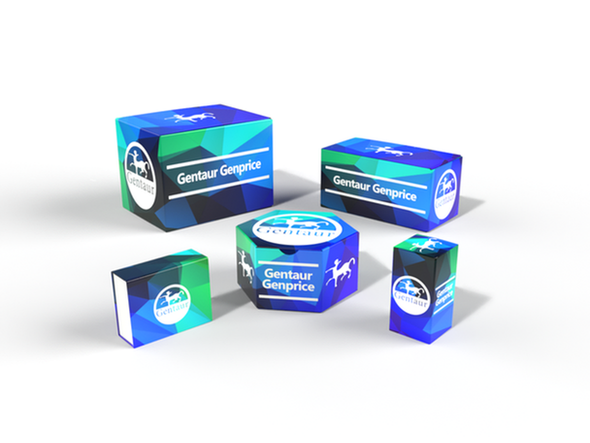451 Recombinant Proteins and Cell culture
DHAR1 | Dehydroascorbate Reductase 1 | AS11 1746
- SKU:
- 451-AS11 1746
- Availability:
- Usually ships in 5 working days
Description
DHAR1 | Dehydroascorbate Reductase 1 | AS11 1746 | Gentaur UK, US & Europe Distribution
Immunogen: KLH-conjugated synthetic peptide derived from known DHAR1 sequence of Arabidopsis thaliana Q9FWR4, At1g19570
Host: Rabbit
Conjugation: N/A
Clonality: Polyclonal
Isotype: N/A
Purity: Immunogen affinity purified serum in PBS pH 7.4.
Format: Lyophilized
Tested Application: Western blot (WB)
Related Products: AS11 1747 | Anti-DHAR2, rabbit antibodiesPlant and algal protein extraction buffer Secondary antibodies
Recommended Dilutions: 1 : 5000 (WB)
Molecular weight: 23, 6 | 23, 4 kDa
Confirmed Reactivity: Arabidopsis thaliana, Kandelia candel, Solanum lycopersicum
Predicted Reactivity: Nicotiana tabacum, Populus trichocarpa, Ricinus communis, Solanum tuberosum, Triticum aestivum, Zinnia elegans Species of your interest not listed? Contact us
Not reactive in: No confirmed exceptions from predicted reactivity are currently known
Additional Information: N/A
Background: DHAR1 ( Dehydroascorbate Reductase 1) the protein is induced by jasmonic acid and oxidative chemical stresses and is a key component of the ascorbate recycling system. Involved in redox homeostasis under biotic and abiotic inducers. Localized in mitochondria. Synonymes: glutathione-dependent dehydroascorbate reductase 1, chloride intracellular channel homolog 1, CLIC homolog 1, glutathione-dependent dehydroascorbate reductase 1, AtDHAR1, GSH-dependent dehydroascorbate reductase 1, mtDHAR, AT1G19570.
Reconstitution: For reconstitution add 200 µl of sterile water
Storage: Store lyophilized/reconstituted at -20°C; once reconstituted make aliquots to avoid repeated freeze-thaw cycles. Please remember to spin the tubes briefly prior to opening them to avoid any losses that might occur from material adhering to the cap or sides of the tube.
TAIR Nnumbre: AT1G19570
Category: Mitochondria | Respiration
Research Area: Plant Biology










